|
The SmartState
Program was established by the
South Carolina General Assembly in
2002 to use state funds to create
Centers of Economic Excellence in
research areas that will advance
the state's economy. At the heart
of each center are one or more
world-class scientists.
The following
endowed chairs are housed within
the Bioengineering Building.
Joseph
Helpern, Ph.D., Endowed Chair in
Brain Imaging
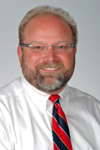 Helpern is leading a
new biomedical imaging initiative
at MUSC while continuing his
personal research activities,
which focus mainly on using
magnetic resonance imaging to
investigate neurodegenerative
diseases such as Alzheimer's
disease, attention deficit
hyperactivity disorder and stroke. Helpern is leading a
new biomedical imaging initiative
at MUSC while continuing his
personal research activities,
which focus mainly on using
magnetic resonance imaging to
investigate neurodegenerative
diseases such as Alzheimer's
disease, attention deficit
hyperactivity disorder and stroke.
Martin
Morad, Ph.D., BlueCross
BlueShield of South Carolina
Foundation, Endowed Chair in
Cardiovascular Health
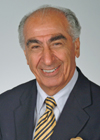 Morad is an
internationally recognized
scientist in the field of cardiac
electrophysiology and calcium
signaling, specifically in the
area of calcium-binding proteins.
Morad seeks to discover what
causes these calcium signaling
mechanisms to stop working
properly, resulting in congestive
heart failure. Morad is an
internationally recognized
scientist in the field of cardiac
electrophysiology and calcium
signaling, specifically in the
area of calcium-binding proteins.
Morad seeks to discover what
causes these calcium signaling
mechanisms to stop working
properly, resulting in congestive
heart failure.
Richard
Swaja, Ph.D., Endowed Chair in
Regenerative Medicine
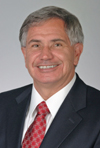 Swaja's work is
focused on regenerative medicine —
the application of tissue
engineering principles to restore
the structure and function of
damaged tissues and organs. Swaja
is the director of the South
Carolina Bioengineering Alliance. Swaja's work is
focused on regenerative medicine —
the application of tissue
engineering principles to restore
the structure and function of
damaged tissues and organs. Swaja
is the director of the South
Carolina Bioengineering Alliance.
Xuejun
Wen, M.D., Ph.D., Hansjörg Wyss
Endowed Chair Professor in
Regenerative Medicine
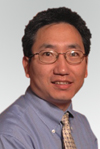 Wen is researching
ways to regenerate functional
human tissues. One of Wen's focus
areas is biomedical devices.
Examples include a "living"
cochlear implant to help restore
hearing loss and a "nerve
bridging" device that would use
material scaffolds and grafted
cells to encourage nerve cells
damaged by injury to regenerate. Wen is researching
ways to regenerate functional
human tissues. One of Wen's focus
areas is biomedical devices.
Examples include a "living"
cochlear implant to help restore
hearing loss and a "nerve
bridging" device that would use
material scaffolds and grafted
cells to encourage nerve cells
damaged by injury to regenerate.
The SmartState Program is allowing
South Carolina to compete
successfully in the global
knowledge-based economy. The
program funds research to find
next-generation therapeutics for
cancer, Alzheimer's disease and
many other crucial health
problems. The following endowed
chairs are housed within the Drug
Discovery Building.
John J.
Lemasters, Ph.D.,
GlaxoSmithKline Distinguished
Endowed Chair
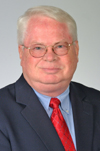 Lemasters is a
pioneer of techniques that allow
scientists to see what happens
inside an individual cell during
reoxygenation-the restoration of
oxygen to an organ following
oxygen deprivation, which
sometimes occurs following a heart
attack or stroke. Lemasters is a
pioneer of techniques that allow
scientists to see what happens
inside an individual cell during
reoxygenation-the restoration of
oxygen to an organ following
oxygen deprivation, which
sometimes occurs following a heart
attack or stroke.
Charles D. Smith, Ph.D., Charles
and Carol Cooper Endowed Chair
in Pharmacy
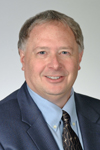 Smith works to design
drugs to fight cancer by unlocking
molecular mechanisms important for
tumor growth. This research could
also enable the development of new
drugs to fight a variety of
inflammatory diseases, including
arthritis, Crohn's disease and
diabetic retinopathy. Smith works to design
drugs to fight cancer by unlocking
molecular mechanisms important for
tumor growth. This research could
also enable the development of new
drugs to fight a variety of
inflammatory diseases, including
arthritis, Crohn's disease and
diabetic retinopathy.
Kenneth
Tew, Ph.D., The John C. West
Endowed Chair in Cancer Research
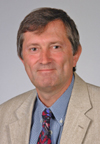 Tew is a leader in
cancer drug discovery and
development. One drug he is
working to develop shows promise
in treating ovarian and lung
cancer, and another has potential
as a modifier of bone marrow
mediated immune function. Tew is a leader in
cancer drug discovery and
development. One drug he is
working to develop shows promise
in treating ovarian and lung
cancer, and another has potential
as a modifier of bone marrow
mediated immune function.
Patrick
Woster, Ph.D., Endowed Chair in
Medicinal Chemistry
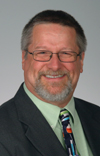 Woster is one of the
nation's leading cancer drug
researchers and is working to
develop drugs that turn specific
genes on or off in tumor cells, a
process known as epigenetic
modulation that can make
anti-tumor medications more
effective. Woster is one of the
nation's leading cancer drug
researchers and is working to
develop drugs that turn specific
genes on or off in tumor cells, a
process known as epigenetic
modulation that can make
anti-tumor medications more
effective.
For information
on SmartState South Carolina
Centers of Economic Excellence,
visit http://www.sccoee.org.
|



 Helpern is leading a
new biomedical imaging initiative
at MUSC while continuing his
personal research activities,
which focus mainly on using
magnetic resonance imaging to
investigate neurodegenerative
diseases such as Alzheimer's
disease, attention deficit
hyperactivity disorder and stroke.
Helpern is leading a
new biomedical imaging initiative
at MUSC while continuing his
personal research activities,
which focus mainly on using
magnetic resonance imaging to
investigate neurodegenerative
diseases such as Alzheimer's
disease, attention deficit
hyperactivity disorder and stroke. Morad is an
internationally recognized
scientist in the field of cardiac
electrophysiology and calcium
signaling, specifically in the
area of calcium-binding proteins.
Morad seeks to discover what
causes these calcium signaling
mechanisms to stop working
properly, resulting in congestive
heart failure.
Morad is an
internationally recognized
scientist in the field of cardiac
electrophysiology and calcium
signaling, specifically in the
area of calcium-binding proteins.
Morad seeks to discover what
causes these calcium signaling
mechanisms to stop working
properly, resulting in congestive
heart failure.  Swaja's work is
focused on regenerative medicine —
the application of tissue
engineering principles to restore
the structure and function of
damaged tissues and organs. Swaja
is the director of the South
Carolina Bioengineering Alliance.
Swaja's work is
focused on regenerative medicine —
the application of tissue
engineering principles to restore
the structure and function of
damaged tissues and organs. Swaja
is the director of the South
Carolina Bioengineering Alliance. Wen is researching
ways to regenerate functional
human tissues. One of Wen's focus
areas is biomedical devices.
Examples include a "living"
cochlear implant to help restore
hearing loss and a "nerve
bridging" device that would use
material scaffolds and grafted
cells to encourage nerve cells
damaged by injury to regenerate.
Wen is researching
ways to regenerate functional
human tissues. One of Wen's focus
areas is biomedical devices.
Examples include a "living"
cochlear implant to help restore
hearing loss and a "nerve
bridging" device that would use
material scaffolds and grafted
cells to encourage nerve cells
damaged by injury to regenerate. Lemasters is a
pioneer of techniques that allow
scientists to see what happens
inside an individual cell during
reoxygenation-the restoration of
oxygen to an organ following
oxygen deprivation, which
sometimes occurs following a heart
attack or stroke.
Lemasters is a
pioneer of techniques that allow
scientists to see what happens
inside an individual cell during
reoxygenation-the restoration of
oxygen to an organ following
oxygen deprivation, which
sometimes occurs following a heart
attack or stroke.  Smith works to design
drugs to fight cancer by unlocking
molecular mechanisms important for
tumor growth. This research could
also enable the development of new
drugs to fight a variety of
inflammatory diseases, including
arthritis, Crohn's disease and
diabetic retinopathy.
Smith works to design
drugs to fight cancer by unlocking
molecular mechanisms important for
tumor growth. This research could
also enable the development of new
drugs to fight a variety of
inflammatory diseases, including
arthritis, Crohn's disease and
diabetic retinopathy. Tew is a leader in
cancer drug discovery and
development. One drug he is
working to develop shows promise
in treating ovarian and lung
cancer, and another has potential
as a modifier of bone marrow
mediated immune function.
Tew is a leader in
cancer drug discovery and
development. One drug he is
working to develop shows promise
in treating ovarian and lung
cancer, and another has potential
as a modifier of bone marrow
mediated immune function. Woster is one of the
nation's leading cancer drug
researchers and is working to
develop drugs that turn specific
genes on or off in tumor cells, a
process known as epigenetic
modulation that can make
anti-tumor medications more
effective.
Woster is one of the
nation's leading cancer drug
researchers and is working to
develop drugs that turn specific
genes on or off in tumor cells, a
process known as epigenetic
modulation that can make
anti-tumor medications more
effective.